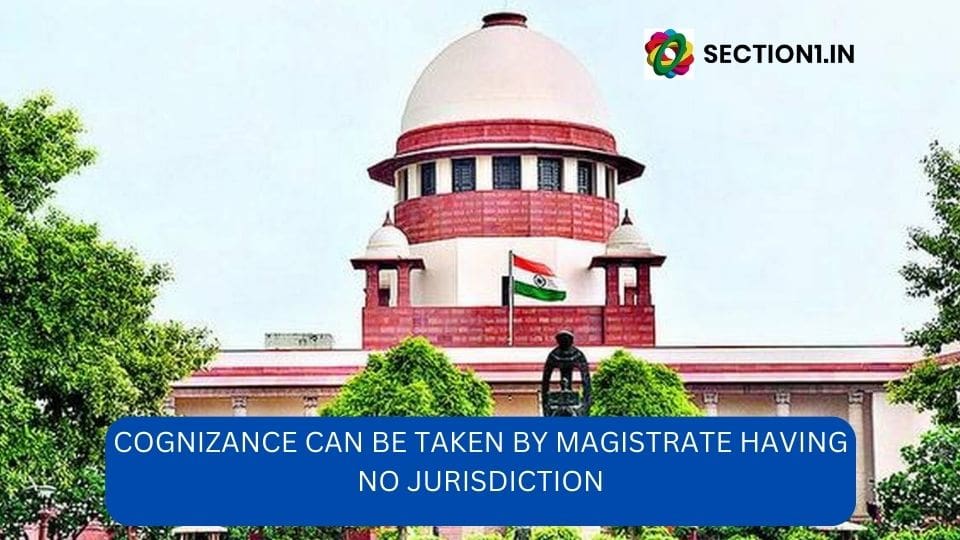It is an erroneous view that the Magistrate taking cognizance of an offence must necessarily have territorial jurisdiction to try the case as well. Chapter XIII of the Code relates· to jurisdiction of the criminal courts “in enquiries and trials.” That chapter contains provisions regarding the place where the enquiry and trial are to take place. Section 177 says that “every offence shall ordinarily be inquired into and tried by a Court within whose local jurisdiction it was committed.” But section 179 says that when an act is an offence by reason of anything which has been done and of a consequence which has ensued, the place of enquiry and trial can as well be in a Court “within whose local jurisdiction such thing has been done or such consequence has ensued.” It cannot be overlooked that the said provisions do not trammel the powers of any court to take cognizance of the offence. Power of the Court to take cognizance of the offence is laid in Section 190 of the Code. subsections (1) & (2) read thus:
“(i) Subject to the provisions of this Chapter, any Magistrate of the first class, and any Magistrate of the second class specially empowered in this behalf under sub-section (2), may take cognizance of any offence:
(a) Upon receiving a complaint of facts which constitute such offence;
(b) Upon a police report of such facts;
(c) Upon information received from any person other than a police officer, or upon his own knowledge, that such offence has been committed.
(ii) The Chief Judicial Magistrate may empower any Magistrate of the second class to take cognizance under sub-section (1) of such offences as are within his competence to inquire into or try.”
Section 193 imposes a restriction on the court of Sessions to take cognizance of any offence as a court of original jurisdiction. But ‘any’ Magistrate of the First Class has the power to take cognizance of any offence, no matter that the offence was committed within his jurisdiction or not.
The only restriction contained in Section 190 is that the power to take cognizance is “subject to the provisions of this Chapter.” There are 9 Sections in Chapter XIV most of which contain one or other restriction imposed on the power of a First Class Magistrate in taking cognizance of an offence. But none of them incorporates any curtailment on such powers in relation to territorial barrier. In the corresponding provision in the old Code of Criminal Procedure (1898) the commencing words were like these: “Except as hereinafter provided.” Those words are now replaced by “Subject to the provisions of this chapter.” Therefore, when there is nothing in Chapter XIV of the Code to impair the power of a Judicial Magistrate of First Class taking cognizance of the offence on the strength of any territorial reason it is impermissible to deprive such a Magistrate of the power to take cognizance of an offence of course, in certain special enactments special provisions are incorporated for restricting the power of taking cognizance of offences falling under such acts. But such provisions are protected by non-obstante clauses. Any way that is a different matter.
The jurisdictional aspect becomes relevant only when the question of enquiry or trial arises. It is therefore a fallacious thinking that only a Magistrate having jurisdiction to try the case has the power to take cognizance of the offence. If he is a Magistrate of the First Class his power to take cognizance of the offence is not impaired by territorial restrictions. After taking cognizance he may have to decide as to the Court which has jurisdiction to enquire into or try the offence and that situation would reach only during the post cognizance stage and not earlier.
Unfortunately, the High Court, without considering any of the aforesaid legal aspects, rushed to the erroneous conclusion that the “judicial magistrate of first class, Gandhidham has no power to take cognizance of the offences alleged” merely because such offences could have been committed outside the territorial limits of the State of Gujarat. Even otherwise, without being apprised of the fuller conspectus a decision on the question of jurisdiction should not have been taken by the High Court at a grossly premature stage as this.
Party
TRISUNS CHEMICAL INDUSTRY v. RAJESH AGARWAL AND ORS – Crl.A. No.950 of 1999 – SEPTEMBER 17, 1999 – 199 Supp 2 SCR 686.
https://main.sci.gov.in/jonew/judis/16662.pdf
Trisins chemical industry case
Further study
- Whether the sessions court can take second cognizance u/s 193Cr.P.C after the case was committed by the Magistrate who took cognizance u/s 190 Cr.P.C earlier?
- Magazine Blog V2 Header
- WHETHER FIR CAN BE REGISTRERED IN ANY POLICE STATION?
- RESOURCE – TAKING COGNIZANCE – A BASIC UNDERSTANDING
- Cr.P.C., 1973. Notes no.9: Second FIR, General propositions as to FIR, appreciation & Evidentiary value of first information report (Chapter XII – Part.3, 4, 5 & 6)




